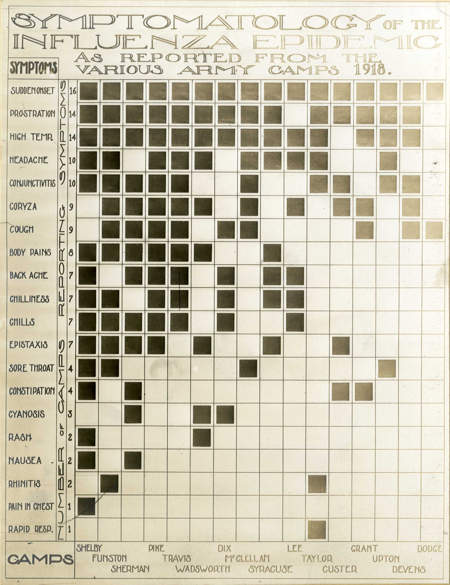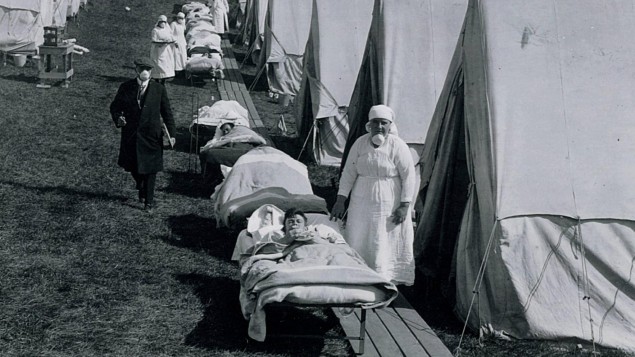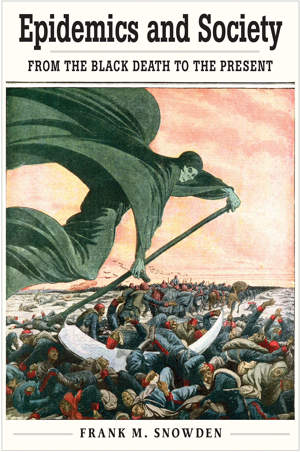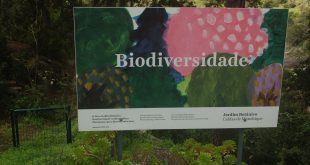Friday, May 1st, 2020
The First World War ended with the Spanish Flu in 1918. That sentence, such as it stands here, has never been written in a history book for schools. Why not? The number of those who died in that epidemic is said to have been three times greater than the number of those who died in battle. The Spanish flu has nothing to do with Spain.  Did you know that? Spanish flu was brought to Europe from the United States. The mother of all pandemics, as it is also called, began when a virus at a chicken factory farm in the state of Kansas, or more precisely in Haskell County, spread to humans in the spring of 1918, in the form of a poultry farmer, and was taken from there by the US military to Europe and into the First World War. And another thing: Napoleon’s wars were ended by yellow fever, the Thirty Years War by the plague. Shall I tell you more about other pandemics? The swine flu and the bird flu, the Hong Kong flu, cholera and Ebola in West Africa: about how epidemics can topple empires and destroy economic systems? How do you think the USA will be in a few months’ time? Pride and stupidity always come before a fall. And, even then, as now, there were conspiracy theories. I will not dwell on them here. I want to take this story somewhere else.
Did you know that? Spanish flu was brought to Europe from the United States. The mother of all pandemics, as it is also called, began when a virus at a chicken factory farm in the state of Kansas, or more precisely in Haskell County, spread to humans in the spring of 1918, in the form of a poultry farmer, and was taken from there by the US military to Europe and into the First World War. And another thing: Napoleon’s wars were ended by yellow fever, the Thirty Years War by the plague. Shall I tell you more about other pandemics? The swine flu and the bird flu, the Hong Kong flu, cholera and Ebola in West Africa: about how epidemics can topple empires and destroy economic systems? How do you think the USA will be in a few months’ time? Pride and stupidity always come before a fall. And, even then, as now, there were conspiracy theories. I will not dwell on them here. I want to take this story somewhere else.
What sense does it make if we give a university education to generations of historians and economists, as well as journalists, and they are not at all capable of being useful to humankind by providing us with the information we need? Or, to put it another way, why have history teachers and journalists been so useless in their work for humanity so far? This great mass of basic knowledge, of supposed intelligence (information), has not prevented a pandemic until today. On the contrary. If we had been taught these things at school and by our parents and grandparents, we could have learned what is generally useful today: care and patience. Do we learn these things on Facebook? Definitely not. Do we live, work and have fun only because we always have to go on with our life and work, with our ego? Do we live just because we can’t do anything else?
We’ve been given this chance now. Why do we use it so little? For six weeks we have had time to get inside ourselves, to meditate, to think, to find ways out of this cul-de-sac. The Spanish flu in autumn 1918 caused a second, and then later a third, wave of infection. More than 50 million people fell victim to it. So, there’s no problem then?

Well, we could try some mathematics now. There are almost eight billion people in this world, a few million of whom are expendable. Are they? Did the Creator make a design flaw in the construction of humankind? We live to the age of 70 on average and eat about 100 kg of meat every year, and we only strive for something that Karl Marx called added value and that other philosophers gave a different label, a different name, to. But in the end, it doesn’t matter. What is important now is what we do with our intelligence, how we can find our way out of this labyrinth of crises. And this is where both economists and historians come into play. But, just as in 1918, nothing any different will happen in 2020. Everyone now wants their freedom of movement back, and the chance to go back to normal. Here you go. Let’s get these things back and let’s infect each other with Covid-19. Let’s all die from it! Life is just a question of either having or being, isn’t it? And the rest is just history, right? We humans have a collective defect within ourselves. We have no collective memory and we’re forgetful. We only reproduce once every 20 years and we’re getting further and further away from ourselves.
I recommend the book “Epidemics and Society. From the Black Death to the Present” by Frank Snowden, published by Yale University. You can read this for free on Google.
 Eco123 Revista da Economia e Ecologia
Eco123 Revista da Economia e Ecologia


